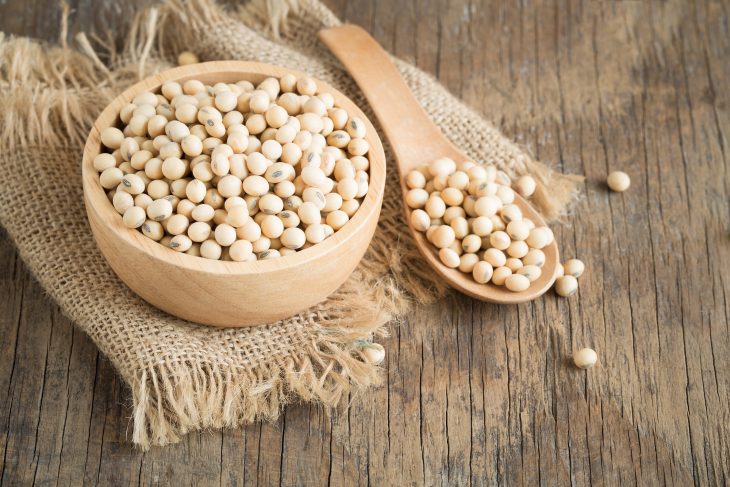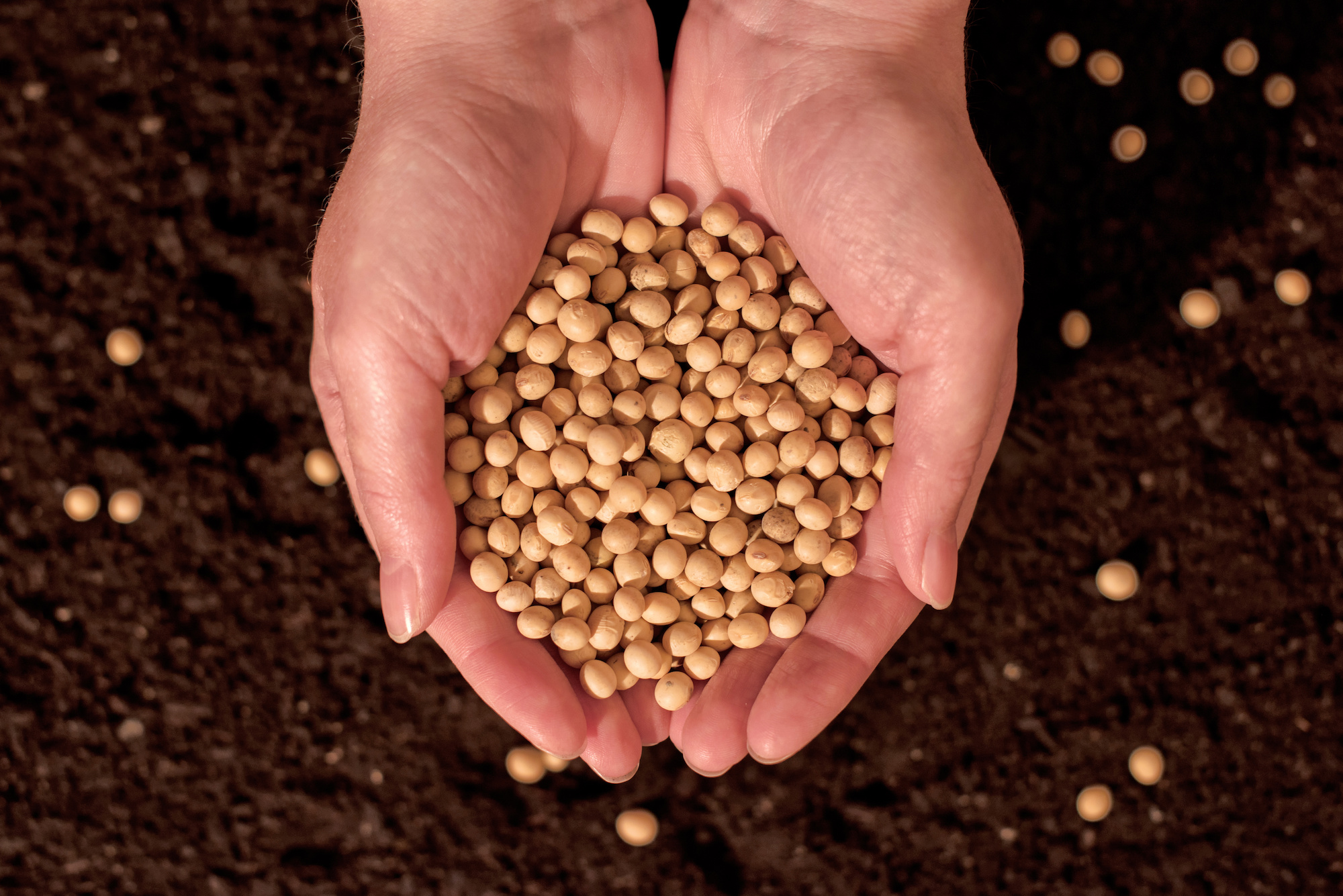
Soybeans, also known as Glycine max, have been cultivated and consumed for centuries, serving as a staple in many cuisines around the world. These versatile legumes are not only packed with essential nutrients but also offer a multitude of health benefits. From their use in tofu and soy milk to their presence in a wide range of processed foods, soybeans have become a prominent ingredient in our diets.
In this article, we will explore the fascinating world of soybeans, uncovering their fun facts, nutritional value, and potential benefits. So, sit back, relax, and prepare to be amazed by the mighty soybeans!
An Introduction to Soybeans
Soybeans are an ancient crop that originated in East Asia, with a history dating back thousands of years. They belong to the legume family and are known for their high protein content and versatility in culinary applications. Soybeans are grown in various regions worldwide, including the United States, Brazil, and China, making them one of the most widely cultivated crops globally.
Appearance and Varieties
Soybeans are small, oval-shaped legumes that come in different colors, including yellow, green, and black. The outer covering of the soybean is typically light brown, and the inner part consists of two cotyledons or seed leaves. There are numerous soybean varieties, each with its own unique characteristics, flavor profiles, and uses.

Protein
Soybeans are a fantastic plant-based source of protein, containing all the essential amino acids necessary for human health. They offer a complete protein profile, making them an excellent alternative for individuals following vegetarian or vegan diets.
Healthy Fats
Soybeans are a source of polyunsaturated and monounsaturated fats, including omega-3 and omega-6 fatty acids. These fats contribute to heart health and help reduce the risk of chronic diseases.
Fiber
Soybeans are high in dietary fiber, which aids digestion, promotes satiety, and supports a healthy gut. Consuming an adequate amount of fiber is essential for maintaining overall digestive health.
Vitamins and Minerals
Soybeans are a good source of various vitamins and minerals, including folate, vitamin K, potassium, phosphorus, and magnesium. These micronutrients play crucial roles in supporting overall health and well-being.
Heart Health
The high protein content, coupled with the presence of healthy fats in soybeans, contributes to cardiovascular health. Regular consumption of soybeans may help reduce LDL cholesterol levels and improve overall lipid profiles, lowering the risk of heart disease.
Bone Health
Soybeans contain isoflavones, plant compounds that have been linked to improved bone health. These compounds may help reduce the risk of osteoporosis and promote bone density, particularly in postmenopausal women.
Hormonal Balance
Isoflavones found in soybeans, such as genistein and daidzein, are known as phytoestrogens. These compounds have a similar structure to estrogen and may help alleviate menopausal symptoms, such as hot flashes and night sweats.
Digestive Health
The fiber content in soybeans supports a healthy digestive system by promoting regular bowel movements and aiding in the maintenance of a healthy gut microbiome. Adequate fiber intake is essential for preventing constipation and supporting overall digestive wellness.
Weight Management
Soybeans are nutrient-dense and high in protein, making them a satisfying food choice. Including soybeans in a balanced diet can contribute to satiety, helping to control appetite and potentially assist with weight management goals.
Culinary Versatility
Soybeans offer endless possibilities in the culinary world. They are transformed into an array of popular soy-based products, such as tofu, tempeh, soy milk, soy sauce, and miso. Additionally, soybeans are used as ingredients in various processed foods, including burgers, sausages, and dairy alternatives. Their neutral taste and ability to absorb flavors make them a versatile ingredient in both savory and sweet dishes.
Environmental Impact
Soybeans have gained attention in recent years due to their environmental impact. As a highly cultivated crop, soybeans have been linked to deforestation and habitat destruction, particularly in regions like the Amazon rainforest. It’s important to consider the sourcing and sustainability of soybeans to minimize their ecological footprint and support responsible farming practices.
Long History
Soybeans have been cultivated in China for over 5,000 years, making them one of the oldest domesticated crops in the world.
Crop Versatility
Soybeans are used for more than just food production. They are also processed into products like biodiesel, industrial lubricants, and even ink.

Crop Rotation Benefits
Soybeans are commonly used in crop rotation practices to improve soil fertility. They have the ability to fix nitrogen from the air, enriching the soil and reducing the need for synthetic fertilizers.
Record-Breaking Yields
The highest recorded soybean yield was achieved in 2016 in Brazil, with an astounding harvest of over 115 bushels per acre.
Incredible Protein Content
Soybeans are one of the best plant-based sources of protein. They contain approximately 36-56 grams of protein per 100 grams, rivaling many animal-based protein sources.
Conclusion
Soybeans are not only a versatile and nutritious legume but also offer a fascinating glimpse into the world of sustainable food production and health benefits. From their rich protein content to their potential role in heart health and hormone balance, soybeans continue to captivate the attention of both culinary enthusiasts and health-conscious individuals.
So, why not embrace the power of soybeans and explore the diverse array of delicious dishes they have to offer? Whether you’re savoring tofu, indulging in soy milk, or enjoying soy-based treats, let the mighty soybeans bring joy and nourishment to your culinary adventures.
Frequently Asked Questions (FAQs)
Are soybeans suitable for individuals with soy allergies?
Individuals with soy allergies should avoid consuming soybeans and soy-based products. Soy allergies are relatively common, and the consumption of soy can trigger allergic reactions, ranging from mild to severe.
Can soybeans be enjoyed by people following a gluten-free diet?
Yes, soybeans are naturally gluten-free and can be safely consumed by individuals following a gluten-free diet. However, it’s essential to check food labels and avoid processed soy products that may contain gluten-containing ingredients.
Are soybeans genetically modified?
Soybeans are one of the most commonly genetically modified crops. It’s important to be mindful of the sourcing and choose organic or non-GMO certified soybeans if you prefer to avoid genetically modified organisms (GMOs).
Can soybeans be enjoyed by individuals with lactose intolerance or dairy allergies?
Yes, soy-based products such as soy milk and tofu are suitable alternatives for individuals with lactose intolerance or dairy allergies. Soy milk can be used as a dairy-free milk substitute in various recipes.
How can I incorporate soybeans into my diet?
There are numerous ways to enjoy soybeans in your diet. You can try tofu stir-fries, soy milk smoothies, roasted soybeans as a snack, or even explore traditional soy-based dishes from various cuisines around the world.
Was this page helpful?
Our commitment to delivering trustworthy and engaging content is at the heart of what we do. Each fact on our site is contributed by real users like you, bringing a wealth of diverse insights and information. To ensure the highest standards of accuracy and reliability, our dedicated editors meticulously review each submission. This process guarantees that the facts we share are not only fascinating but also credible. Trust in our commitment to quality and authenticity as you explore and learn with us.
